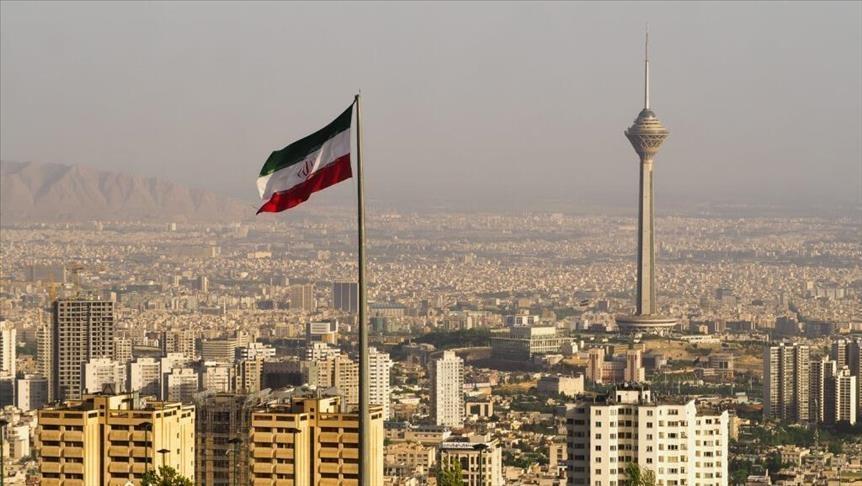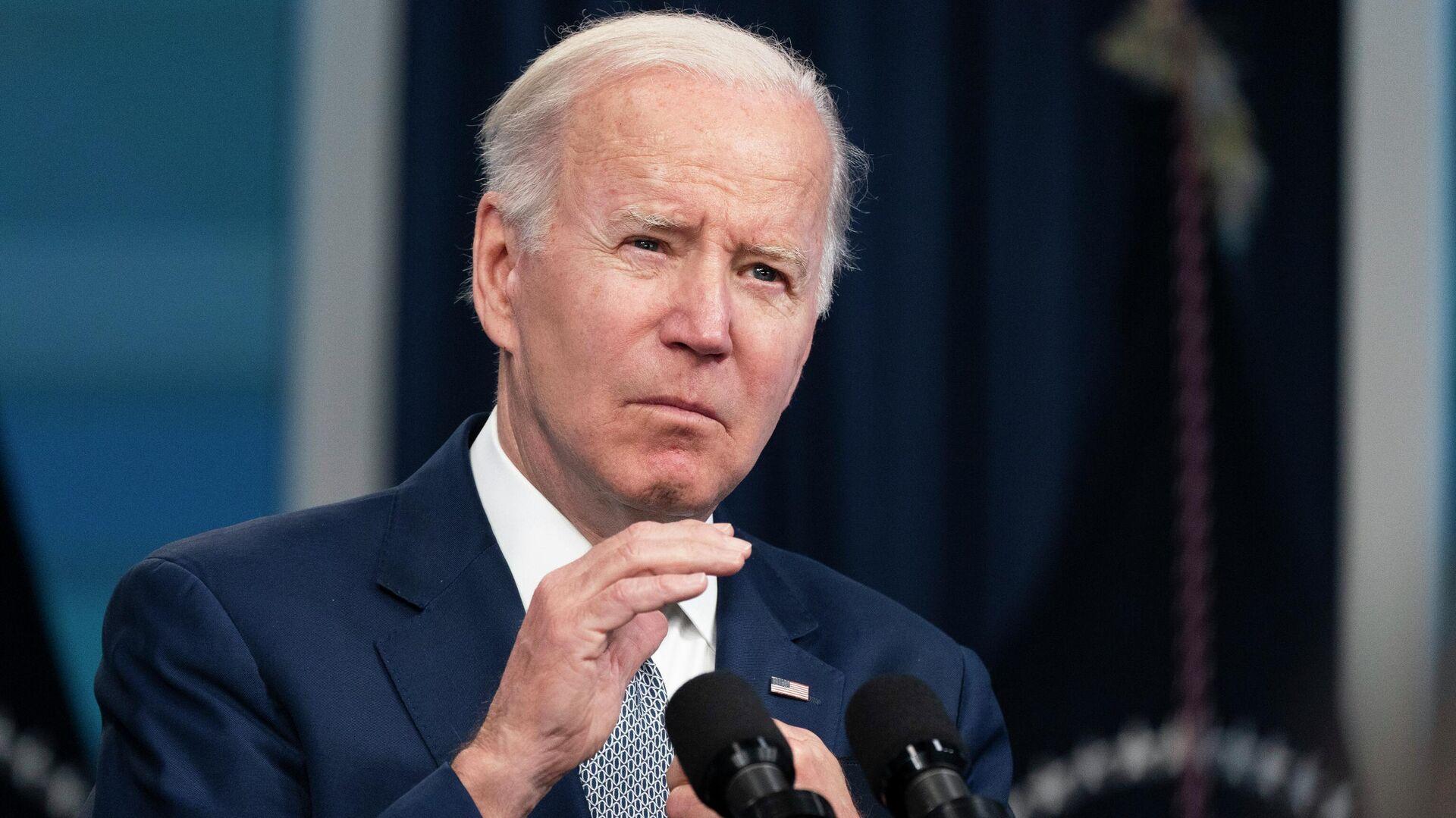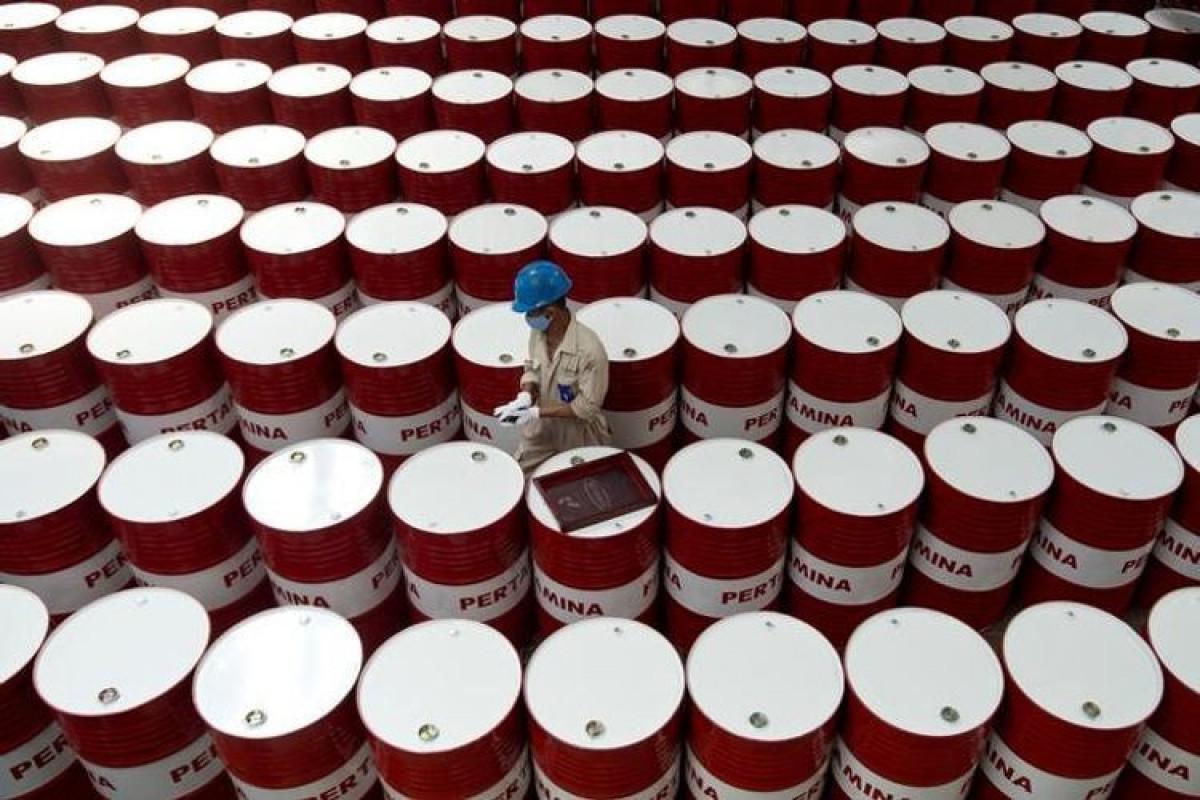Will Arabs replace Russian oil, gas? Analysis by Sergey Bogdan
The Russian invasion of Ukraine has thrust not only Eastern Europe to the forefront of global politics. Rapid changes have also begun in the Middle East. Their symbol was this week's visit by Saudi Crown Prince [Deputy Prime Minister, Defence Minister Mohammed bin Salman Al Saud] to the region, which was made possible by his actual rehabilitation in the midst of a new global conflict. After all, the West desperately needs Arab oil and gas to continue to fight Russia. At the same time, Russian Foreign Minister Lavrov visited Iran on Wednesday [June 22] to show the Arabs, who are hesitating under the pressure of the West, what will happen if they succumb to this pressure. The events in the Middle East and Eastern Europe are intertwined.
Instant "handshake" recovery
Western media report that "normalisation is hovering in the Middle East" and following the reconciliation of Israel and Arab countries, Saudi Arabia and Türkiye are coming closer. This week, the Crown Prince of Saudi Arabia and the de facto leader of this country, Mohammed bin Salman, toured the Middle East, visiting Egypt, Jordan and Türkiye. The prince, who is often called by his initials - MBS [Mohammed bin Salman Al Saud] - has long aspired to become the leader of the Arab world. Tensions between Ankara and Riyadh began during the "Arab Spring" and reached a peak when Saudi activist Jamal Khashoggi was killed and dismembered in the Saudi consulate in Istanbul in the fall of 2018. The normalisation of Saudi-Turkish relations began in parallel with the deployment of the Russian intervention in Ukraine: first, Türkiye handed over the materials of the court case to the Saudis, and then, in April, for the first time in five years, [Turkish President Recep Tayyip] Erdogan visited the kingdom and publicly embraced the Crown Prince there.
After the scandal with the murder of Saudi opposition leader Khashoggi, the prince lost his "handshake status" for a while. The current tour has finally normalised his status as an authoritative statesman. Even US President Biden will visit him in July. The same Biden, who in 2019, without choosing expressions, vowed to "sort out" MBS, since Western intelligence agencies said that the prince was involved in the murder.
But the higher the politics, the stronger the winds of change are blowing there, and at the level of global leaders, they reach just supersonic speed. And the one who was branded with the last words yesterday suddenly becomes the best friend and partner, and vice versa. In general, it is instructive to look at the example of MBS before discussing the final break between the West and Putin.
The Russian-Ukrainian war has greatly changed the situation in the Middle East. Western commentators clearly link Biden's trip to visit MBS with events in Eastern Europe - "due to the war in Ukraine, the West needs the support of Riyadh".

Iran as a scarecrow
But what can Biden offer the Arabs? The monarchies of the Persian Gulf are clearly not concerned about Russian politics, but about neighbouring Iran. After all, Tehran is becoming a nuclear power under the guise of the current confrontation between Russia and the West. After the change of the presidential administration in the United States, hope for a return to the "nuclear deal" between Iran and world powers again dawned: in February, on the eve of the start of the Russian-Ukrainian war, it was reported that the new deal was more than 90 per cent ready. But already in March, all the agreements actually fell unrecognised victims of the Russian-Ukrainian war - in a situation of discord between the Russian Federation and the West, Tehran had nothing to fear from comprehensive pressure and agreed to retreat from the nuclear goal.
Arab capitals are not happy to note the results of Iran's regional activity, whose allies in Yemen and Syria have survived and even strengthened despite the most difficult wars. Add to this the tacit reduction of the Russian military presence in Syria in connection with operations in Ukraine, which also strengthened the Iranian position in Damascus.
Could it be worse for the Arab monarchies of the Gulf? Yes, if Iran finally gets, if not new weapons, then at least spare parts for old Soviet and Russian military equipment purchased in the Gorbachev-Yeltsin times. There is a lot of it in Iran and any resumption of such supplies will instantly revive the Iranian army.
The West is not offering the Arabs some fundamental solution to the "Iranian issue" in the form of regime change according to the Libyan or Iraqi models, which many in the Gulf and Israel have been hoping for since the mid-2000s. The West gives only some guarantees of protection against very obvious aggression, but Arab countries do not want to repeat the path of Ukraine and become a battlefield of larger players.
But for now, there is a menu on their table with a small selection of possible options. One of them is known - for several months there have been rumours about the upcoming conclusion of a regional pact of pro-Western regimes in the Middle East in the field of air defence to repel missile and unmanned attacks from Iran. Earlier this week, Israeli Defence Minister Benny Gantz announced that his government was already working with the United States to create such an alliance of "Middle East air defence". Moreover, according to Ganz, the framework of such a system has already been built and is working, helping to "defend against Iran's attempts to attack Israel and other countries". Tel Aviv hopes that during Biden's July visit to the Gulf, another step will be taken towards regional cooperation in this area.
The problem of Iran - whose rise is just beginning - for the Arab monarchies is not at all hypothetical. To hint that in the event of Arab support for Western sanctions, Moscow will strengthen ties with Iran with all the ensuing consequences, Russian Foreign Minister Lavrov went to Tehran, where he not only discussed economic cooperation, Iran's accession to the SCO [Shanghai Cooperation Organisation] and the signing of a free trade agreement between the EurAsEC [Eurasian Economic Community]. With his Iranian counterpart, he agreed on the fastest possible agreement on the text of the strategic partnership agreement. In order to make it even more convincing to the Arab countries of the region that they should not ignore Russia, Lavrov mercilessly went through the plans of the United States and Israel regarding the integration of missile defence and maritime defence systems with a number of Arab countries - it was stated that this is necessary to protect against Iran. According to him, they are "an example not of finding a balance of interests, but an example of introducing confrontation, an example of an attempt to create dividing lines forever".
However, so far there can be no question that Russia is going to bet only on Iran. This is evidenced by Moscow's reaction to the invitation sent through Lavrov to Putin to visit Tehran. A little-known, but remarkable fact is that Putin has never been on a full-fledged visit to Iran. All his trips to Iran were combined with certain summits, multilateral meetings and events. And this time, as hinted by the Russian media, Putin will come to Tehran only for a meeting in the "Astana format", i.e. with the participation of the presidents of Iran, Russia and Türkiye.

"Pray for Biden's visit"
Moscow seeks to remind Arab countries of the Kremlin's means of responding to their possible participation in Western pressure on Russia because these states' positions are not only contradictory but also changeable - the West and its allies are actively and not ineffectively working to change it in the desired direction. On June 2, after the adoption by the European Union of the sixth package of sanctions against Russia, the head of the Presidential Administration of Ukraine Andriy Ermak called on the Gulf countries to join the solution to the global energy and food crisis, i.e. to maintain pressure on the Russian Federation, including by ousting Russian energy resources from the markets. This process is still very limited, and the leading Ukrainian expert on the Middle East, Igor Semivolos, said that "we need to pray for Biden's visit" in July to the Arab countries of the Gulf, which, they say, can only attract the Arabs to the side of Ukraine and its Western allies and "knock one of the last bricks out from under Putin's feet".
On June 11, the New York Times reported on the problems faced by the American government in its attempts to achieve the accession of a number of non-European countries to sanctions against Russia. Among them are the Arab states of the Persian Gulf, but they do not look like renegades - India, Brazil and even Israel have the same positions. Another attempt to convince the Arabs to press Russia was the visit of the first Deputy US Treasury Secretary Adewale Adeyemo to the Emirates on June 19-22, with unclear results.
This reluctance of the Arabs to "fit in" behind the EU and the United States is consistently associated with the latter's unwillingness to "fit in" behind the Arab regimes in matters important from the point of view of Arab monarchs, for example, in the nuclear disarmament of Iran, the war in Yemen or the overthrow of Assad. For example, at the very beginning of the confrontation with Russia, in 2014, the EU discussed the "Arab key" to Russia, namely the possibility of putting more pressure on Moscow if Saudi Arabia increased oil and gas production, bringing down prices. But it was almost impossible to achieve this since the West was trying at that moment to negotiate with Iran on its nuclear programme.
The West knew about the unwillingness of the Arab regimes to "drag chestnuts out of the fire" for the United States and its European allies and worked on it. On the eve of Putin's current invasion of Ukraine, the United States sent officials to Saudi Arabia to negotiate an increase in oil production, but all in vain. Immediately after the start of the Russian-Ukrainian war, the Gulf monarchies made it clear that they were going to adhere to their obligations under OPEC+ and did not intend to play against Moscow. In March, Putin held telephone talks with the de facto ruler of the UAE and Crown Prince of Abu Dhabi Mohammed bin Zayed Al Nahyan and Saudi Crown Prince Mohammed bin Salman. Evil tongues said that the latter at the same time refused to answer the calls of the US president, who wanted to talk about the possibilities of increasing oil production for the sake of pressure on the Russian Federation. The point again is not in a certain pro-Russian policy of Riyadh, but in the ostracism to which MBS was subjected at the instigation of the Americans, and in the even more expected dissatisfaction of the Saudis with the fact that last year the administration of the new American president removed the Yemeni Houthis (close to Iran) from the list of terrorist organisations. The Saudis and their allies have been fighting with them since 2015, and the fighting has long moved to Saudi Arabia, affecting Saudi oil fields.
The Saudis' closest allies, the Emirates, were also in no hurry to support the global West. During his March visit to Russia, UAE Foreign Minister Abdullah bin Zayed Al Nahyan assured the Kremlin that the Emirates would not increase oil production. The UAE refused to condemn the Russian Federation at the UN and continued to actively cooperate with Russia. Having traded for $ 5.4 billion, the Emirates became the first partner of the Russian Federation in the Arab world, and clearly bypassed Iran (trade turnover with it amounted to only $4 billion).
Moscow has also received some political support from the Arab League. Its Secretary-General Ahmed Aboul Gheit in April called for sanctions against the Russian Federation to be considered in the relevant UN bodies and offered mediation in the Russian-Ukrainian negotiations.

Struggle for Arab world and struggle for Eastern Europe
Arab countries, with their decisions on oil and gas, can also influence the global confrontation between the West and its opponents. Many of these countries are vulnerable and can hardly afford a hard refusal to the requests of the West, on which they depend in the military and not only relations, even despite their fabulous wealth. Moreover, in their desire to get Arab oil and gas, Western politicians are rapidly sweeping the liberal democratic ideologies they have traditionally promoted off the table. It is not surprising that Western countries do not need delays now, which may arise as a result of discord with Arab regimes - the war with Russia has already begun.
And we saw how on March 15-16, British Prime Minister Boris Johnson went to Saudi Arabia to achieve an increase in energy supplies. His visit took place immediately after the record mass execution in the history of the kingdom - 81 people at once. The very day of Johnson's arrival was marked by the execution of three more! Half of them, according to the UN, were Shiite activists convicted of demonstrations ten days ago. This did not prevent Johnson from not only talking about the strategic importance of Saudi Arabia but also praising the improvement of the human rights situation in this country.
The Arab partners reciprocated. At the end of March, the Saudi oil and gas company Aramco - the largest in the world - loudly presented its strategy, according to which it plans to increase oil production to 13 million barrels per day in the next five years (compare with a little more than 10 million b/d before the war). The company is also considering the possibility of increasing gas production by more than 50 per cent by 2030, as well as increasing the production of liquefied natural gas (LNG) - which is important for meeting European needs.
At the same time, Germany signed a contract with another Arab monarchy of the Gulf - Qatar - for the supply of LNG, which, in fact, should replace most of the Russian supplies. It is planned that Qatar will almost double its LNG production by 2025. This country already occupies an important place in the global hydrocarbon market. In 2020, Qatar exported 106 billion cubic meters, mainly to Asian countries. This is comparable to the total volume of Russian gas imports by EU countries (168 billion cubic metres) and significantly more than the volumes purchased by Germany in Russia (in 2020 - about 56 billion cubic meters).
There were also smaller-scale, but symbolic moves toward the West. At the end of April, it became known that for the first time in almost two years, European countries began to buy oil in the UAE to replace Russian energy resources.
Russia parried these serious attacks in its own direction, and the Arab countries were clearly not against manoeuvring among the opposing sides. On May 10-11, Russian Foreign Minister Lavrov visited Algeria, which also supplies significant volumes of gas to Europe, and Oman, and on May 30 - June 1, he arrived in Bahrain and Saudi Arabia, where he also took part in the forum of the Foreign Ministers of Russia and the Cooperation Council of the Arab States of the Persian Gulf - the most important Arab integration initiative dominated by Saudi Arabia.
Summing up, it should be said that the current events in Eastern Europe are more closely related to what is happening in the Middle East than to the processes in most other regions of the world. This enhances the dynamics of events in both areas. Moreover, it increases the similarity with the destructive processes that took place in international politics on the eve of both world wars — then, too, the friction in Eastern Europe was superimposed on the disputes of world powers in the Middle East. The global chess game is played on several boards at once.
However, there are also differences created by the collapse of empires. But the results of these disintegrations in the Middle East and Eastern Europe differ radically. The corresponding differences between Arab and Eastern European (including post-Soviet) policies are again sharply evident in the current competition between the West and Russia for the Middle East. Arab countries, even if they are not in the strongest position, are in no hurry to abandon their agenda in favour of even powerful allies. The Eastern European elites - ranting about "independence", "rebirth" and other high matters, telling about the great victories of the ancestors of a particular era - immediately surrender their states and peoples, joining on any terms - "even with a carcass, even with a stuffed animal" - in one or another supposedly omnipotent bloc or union. Azerbaijan has escaped dragging itself into this Eastern European swamp, but unfortunately, too many other countries are stuck in it.








